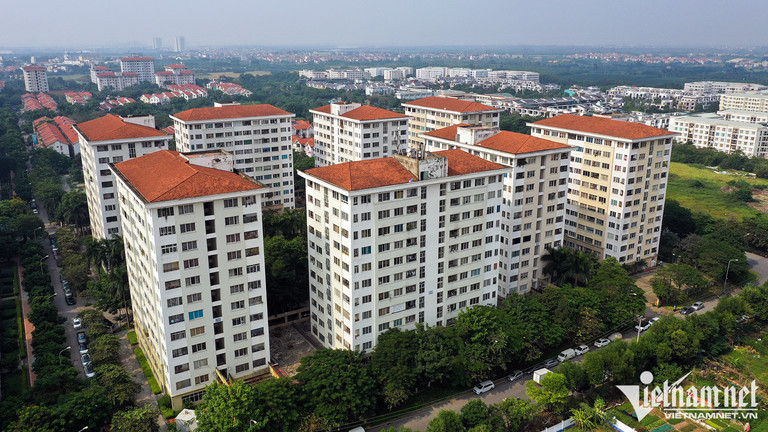
Exports were lower than that of the same period last year, while credit grew only slightly.
The World Bank believes that Vietnam needs to restore investors’ confidence and promote the real estate market to maintain economic stability and growth.
The government of Vietnam has applied many measures to stimulate the real estate market over the last year. The World Bank's recommendations are understood as an affirmation of the government’s ongoing efforts.
Some experts warn that if Vietnam doesn’t take drastic measures, it may fall into difficulties like those happening in China. Sales in the Chinese real estate market have decreased and real estate firms cannot pay debts. The money lockup in real estate has had an adverse effects on the economy.
The Vietnamese government has issued instructions in the last year to find solutions to the property market.
In a recent telegram, Prime Minister Pham Minh Chinh requested to implement solutions to develop the real estate market in a safe, healthy and sustainable way.
Chinh asked the State Bank of Vietnam (SBV) to find practical solutions to promote lending to real estate firms. He also asked to take measures to be sure that house buyers can access official credit.
The central bank has also been told to implement the VND120 trillion credit program to provide preferential loans to develop social housing projects and upgrade apartment buildings.
The government and SBV in 2023 held many working sessions with large real estate firms, including a conference on credit for the real estate sector on November 13, which gathered a high number of realtors.
How to drive cash flow to real estate
The real estate market is stagnant with few transactions in localities throughout the country, while real estate firms have reported lower turnover and profits.
Many real estate firms have very low or zero revenue, such as PVR, Thuan Thao JSC (GTT), and Tay Ba Na Group (VHG).
Many other firms have been named because of unpaid debts, including Golden Hill Investment, HDTC, Danh Khoi Group, Truong Thinh Phat Land and Dat Lanh Real Estate.
Bank loans pumped to the national economy, including the real estate sector, have been growing very slowly.
SBV reported that total outstanding loans to the national economy had reached VND13 quadrillion as of November 30, 2023, up 9.15 percent over late 2022, but lower than the same period last year and much lower than the targeted 14.5 percent growth rate.
According to the World Bank, slow credit growth is the result of the weakening of private investment and investors’ confidence, partly related to stagnation in the real estate market which accounted for 21.6 percent of outstanding loans in 2022.
Meanwhile, the corporate bond market is recovering very slowly. Real estate firms are under pressure as they have to pay big bond debts due in 2024. Many realtors will face difficulties in creating new cash flow to pay debt obligations.
According to FiinGroup, due bond debts in 2024 are estimated at VND155 trillion ($6.3 billion).
The Vietnamese real estate market is always in a state of imbalance in product structure. Realtors mostly pour money into the high-end market segment, such as villas, resorts and high-end apartments, rather than affordable products because high-end products bring higher profits.
In a notice released on December 18, 2023, the Prime Minister requested an end to giving bank loans mostly to some businesses and ecosystems considered the ‘back door’ of large corporations, because this may affect banks’ operations.
He asked to speed up inspections to prevent giving low-interest rate loans to leaders, boards of management, and related persons of commercial banks.
Manh Ha